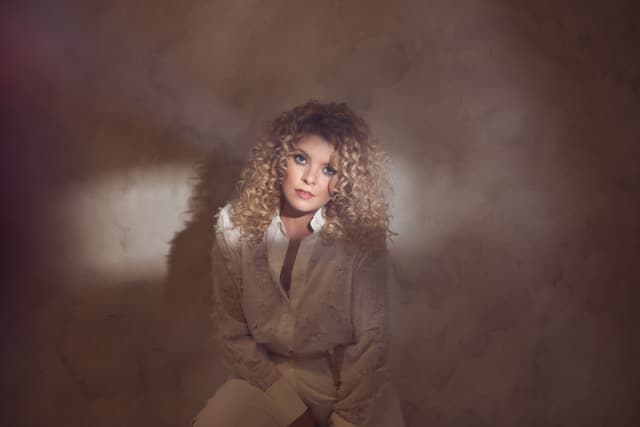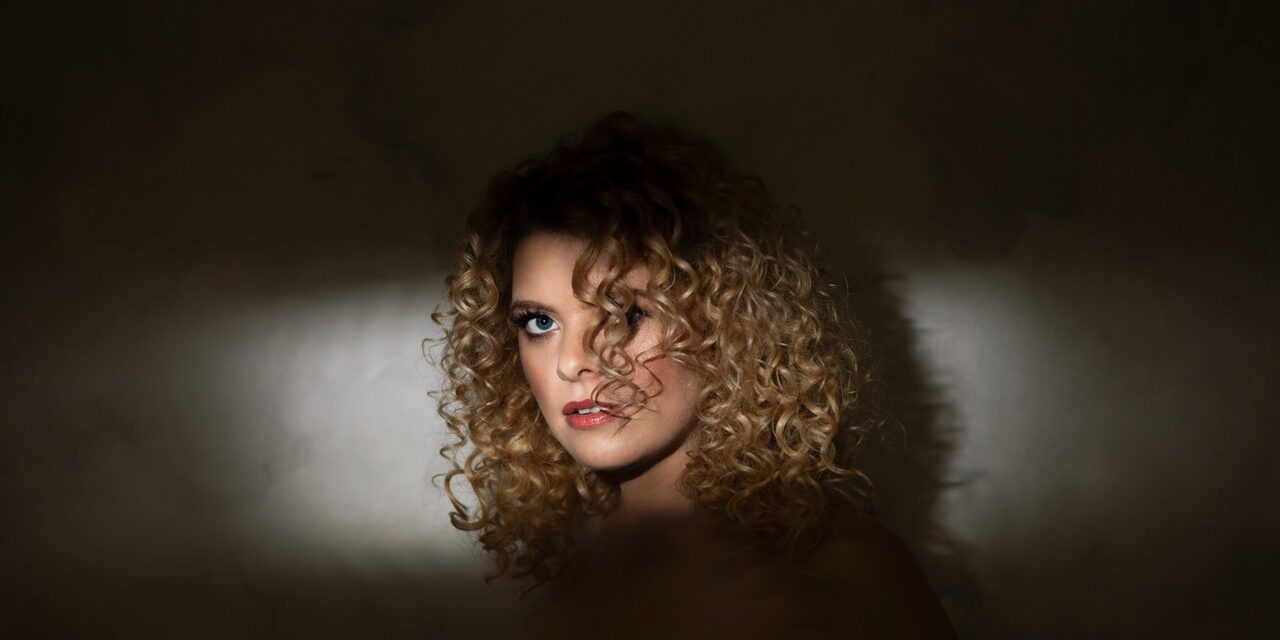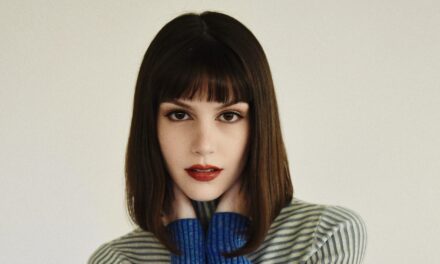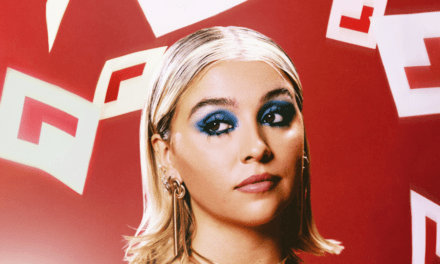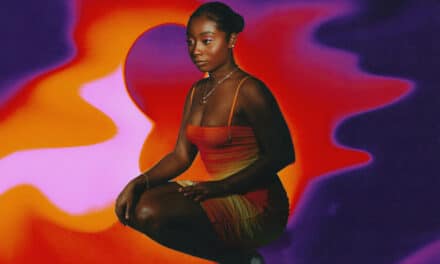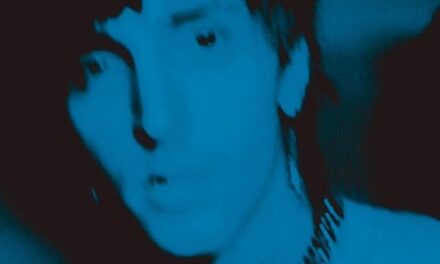Photo credit: Emma Lee
Some artists arrive with polish, others with grit. Callie McCullough manages both, weaving a sound that feels carved from the bedrock of roots music while daring to shimmer in the light of something wholly her own. Her voice—equal parts tender restraint and powerhouse delivery—evokes comparisons to Alison Krauss and Dolly Parton, yet McCullough offsets that vocal purity with dry humor and a presence that feels larger than life.
With high praise already from outlets like American Songwriter and Billboard, McCullough has been steadily carving out her lane with a musical identity rooted in folk, Celtic, bluegrass, and traditional country. Vulnerable, expressive, and unflinchingly personal, her songs lean into nostalgia without ever getting stuck there—offering listeners timeless ballads layered with contemporary edges.
Her debut album After Midnight introduced her to a global audience, boasting contributions from members of Union Station and The Time Jumpers, and quickly earned industry recognition: a Canadian Country Music Association nomination for Alternative Country Album of the Year, and three CMAO nominations for Roots Artist of the Year, Rising Star, and Songwriters of the Year. It was the kind of first step that signals longevity—an artist capable not only of honoring tradition, but of evolving it.
Now, McCullough is entering her next chapter with GRAMMY-nominated producer Dave Brainard (Brandy Clark, Jamey Johnson) at the helm. The collaboration expands her palette, balancing grassy textures and acoustic intimacy with soaring melodies, layered harmonies, and loose, groove-driven rhythms. The result is infectious: songs that echo the past while staking a claim to the present, carrying both catchy hooks and the kind of lyrical depth that lingers long after the music fades.
It’s this duality—classic yet contemporary, delicate yet defiant—that makes Callie McCullough one of the most compelling voices to watch in roots and Americana today. As she steps into this next season, she’s not just nodding to the legends who came before her; she’s boldly placing herself in their lineage, adding a voice that feels destined to endure.
Your voice has been compared to Alison Krauss and Dolly Parton—icons in their own right. Do you ever feel like those comparisons are flattering, intimidating, or something else entirely?
It’s a huge honor – both are once-in-a-lifetime voices that have blazed incredible musical legacies. As much as every artist, including me, wants to be thought of as themselves and have a unique sound, I’m flattered by the comparison.
Cutting Through The Noise feels like a mission statement in its title alone. What noise were you trying to cut through, both in your life and in the music industry?
Cutting Through The Noise was a concept I’d been marinating on for about a year …I was halfway through making the record, and let’s face it, every time you turned on the news or logged on the internet, it felt like the world was in chaos. So I was asking myself some pretty big questions at the time about what really matters…I brought the conversation into the writing room and Cutting Through the Noise was born….it’s about acknowledging that there is chaos, yes, but amidst that, something that matters can always cut through, although it’s one of the most intense songs I’ve ever written- cut simply, it’s about hope. I knew right away when we started recording it that it would be the flagship of this record.
Your roots span folk, Celtic, bluegrass, and traditional country. How do you balance honoring those traditions with making something that feels unapologetically your own?
I guess I don’t think much about it. It’s almost like making a pot of soup – I’m a product of my ingredients – all those influences that I’ve been steeped in my whole life- and then it all just comes together naturally- each song is its own pot of soup and this record has a number of flavours. I love a lot of traditional instrumentation – like dobro, fiddle, pennywhistle so I’m always eager to put them on record- but overall I just focus on bringing each song to life in the way that best honors it – each one is different and I love that.
Working with Dave Brainard, a Grammy-nominated producer known for his ear for storytelling, must have been transformative. What did he pull out of you that you didn’t know was there?
Dave is an incredible Producer and I’d had his name in my back pocket since hearing the 12 Stories record he’s produced for Brandy Clark years ago, around the time I moved to Nashville. He taught me a lot about making fast decisions, and I learned to trust my first instincts a lot more, which let the creativity flow really organically.
There’s a dry humor and big personality in you that contrasts with your more vulnerable ballads. Do you see those as two separate sides of yourself, or is that duality the real Callie McCullough?
Oh yeah, that’s just who I am. My mom used to joke that I had the “voice of an angel, mouth of a trucker,” if that explains it all. I’ve definitely got a wicked sense of humour, and I can be very outspoken, but underneath that, I feel things very deeply, which is where a lot of my creative inspiration comes from.
On your debut album, After Midnight, you collaborated with members of Union Station and The Time Jumpers—legends in their own right. What did those early experiences teach you about owning your artistry in a genre steeped in tradition?
My gosh, stepping into that studio years ago was one of the most exciting and terrifying times of my life. I had already been touring and writing for years with various bands, but when it came time to make my debut solo record, we definitely had a unique vision – and we knew we had the right cast of characters for the job. Those musicians are legends for a reason- the talent and the playing are unparalleled. I had written a batch of songs that were personal and unique to me – and I wanted to bring them to life with really beautiful and traditional sounds. Making the After Midnight record and sending it into the world really let me step into my own artistry and got to say – “hey world, here’s who I am” for the first time.
Your new music has this loose, infectious groove that feels refreshing while still rooted in something timeless. Was there a specific moment in the studio where you felt, “Yes, this is the new chapter”?
I knew right away from the first days in the studio, tossing around ideas and sounds, that we were hitting the nail on the head. I had the first batch of songs I’d been writing in hand, and I was ready to try some new things – Dave and I just clicked on the vision right away!
Folk and country are genres obsessed with storytelling. What story are you telling with Cutting Through The Noise that you couldn’t have told before?
The title track, Cutting through The Noise itself, I think, is a lived tale of what we’ve been experiencing universally the past few years – there’s an angst met by an inner strength that grew both societally and inside me since 2020, and Cutting Through the Noise was my way of giving it a voice…
As an independent artist with a “fighting spirit,” how do you navigate an industry that still often rewards formula over authenticity?
Well, I’ve never been one for rules…so I just tune out the noise of what I “should do” and continue doing whatever I think feels right …
When listeners step into your songs—whether it’s a tender ballad or a harmony-laced groove—what do you hope lingers with them after the last note fades?
I’m hoping that any song they hear lets them sit in a feeling and really feel it for those few minutes. If I can make someone feel something that they need to feel, maybe that lingers and makes their day better.
